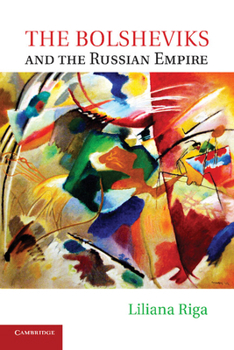The Bolsheviks and the Russian Empire
Select Format
Select Condition 
Book Overview
This comparative historical sociology of the Bolshevik revolutionaries offers a reinterpretation of political radicalization in the last years of the Russian Empire. Finding that two-thirds of the Bolshevik leadership were ethnic minorities - Ukrainians, Latvians, Georgians, Jews, and others - this book examines the shared experiences of assimilation and socioethnic exclusion that underlay their class universalism. It suggests that imperial policies...
Format:Paperback
Language:English
ISBN:1107425069
ISBN13:9781107425064
Release Date:July 2014
Publisher:Cambridge University Press
Length:328 Pages
Weight:1.11 lbs.
Dimensions:0.7" x 6.1" x 9.2"
Customer Reviews
0 rating





